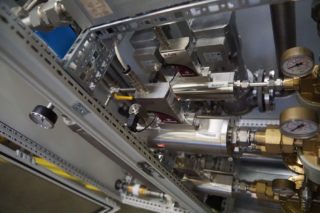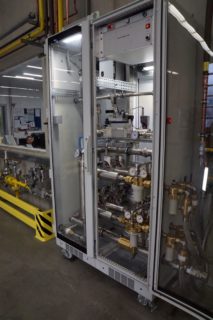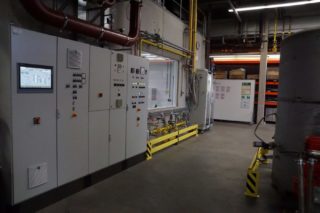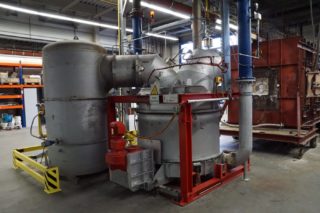-
GWI successfully concludes the upgrade of its semi-industrial high-temperature combustion test rigs
Date posted:
-
-
-
Post Author
Jörg LeicherTeam Manager Simulation, GWI
-
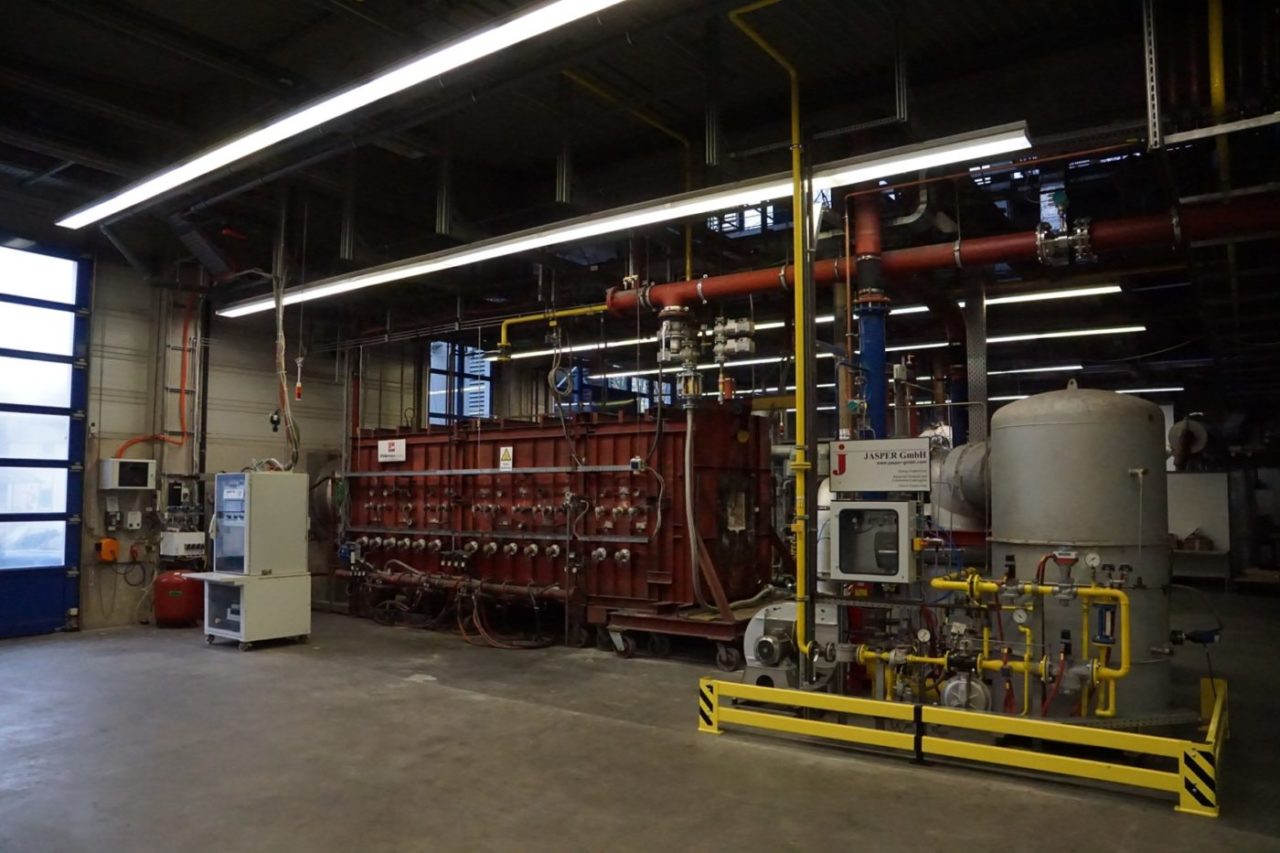
Even in today’s changing energy world, combustion is still the most important process when it comes to providing energy: be it in conventional power plants, in industrial furnaces to provide process heat for all kinds of manufacturing processes, in homes to provide comfortable room temperatures, or in vehicles, on the road, in the air or the sea. Large-scale combustion systems in particular are of huge importance, both for economic and ecological reasons. Combustion experiments on (semi-) realistic scales therefore play an important role in applied combustion research, both for applications in thermal processing industries (e.g. metals, glass, ceramics, …) as well as in power generation. At the same time, these sectors face new challenges, such as demands for decarbonization, more operational flexibility, new fuels or compliance with stricter environmental regulations.
While computer simulations have become powerful and flexible tools both to analyze combustion processes as well as to design, optimize or troubleshoot combustion equipment, they still require frequent validation with reliable experimental data. At the same time, investigations on a semi-industrial scale can provide insight into large-scale firing processes that work-bench-scale experiments simply cannot.
Gas- und Wärme-Institut Essen e.V. (GWI) is one of the few independent and neutral research organizations in Europe which operate semi-industrial high temperature gas burner test rigs and also offer their services and equipment to academic and industrial partners both for contract research or for publicly funded research projects. GWI’s R&D activities are characterized by a combined approach where experiments on a semi-industrial scale are used in combination with detailed CFD investigations, both to regularly cross-check the results of experiment and simulation, and to use the advantages that both methods offer.
In 2018, GWI decided to invest in significant upgrades for its high-temperature combustion test rigs, to be prepared for the combustion challenges of the future. These flexible test rigs, specifically designed for optimum accessibility with both suction probes and optical measurement methods, are equipped with new, fully automated measurement systems for flue gas measurements or 2D field measurements inside the furnaces. The maximum firing rates of the furnaces are 300 kW and 1.2 MW respectively, with air preheating capabilities of up to 1,250 °C. New gas mixing facilities were designed and built to supply the test rigs with a wide variety of relevant fuel gases, ranging from natural gas H and L, to natural gas / hydrogen mixtures, biogas or industrial process gases such as coke oven gas or blast furnace gas. Oxy-fuel combustion experiments can also be carried out on a semi-industrial scale.
The refurbishment of GWI test rig facilities was successfully concluded this summer, all test rigs are back in operation.
If you want to know more about GWI’s experimental infrastructure or would like to discuss a potential cooperation, please contact:
Anne Giese (Head of the Department of Industrial Combustion Technology at GWI, a.giese@gwi-essen.de)
Tim Nowakowski (Team Manager Experiments, nowakowski@gwi-essen.de)
or
Jörg Leicher (Team Manager Simulation / IFRF Liaison, leicher@gwi-essen.de)
ANNOUNCEMENT:
**GWI (Essen, Germany) becomes 2nd IFRF ‘Preferred Research Partner’!**
IFRF and the Gas- und Wärme-Institut Essen e.V. (GWI) have agreed a ‘Memorandum of Understanding’ that makes GWI a ‘Preferred Research Partner’ of IFRF. This is the second such arrangement between IFRF and an organisation that has R&D facilities and capabilities to undertake research for or in conjunction with IFRF and its member organisations – the first such arrangement is with the PACT facilities in Sheffield, UK.
